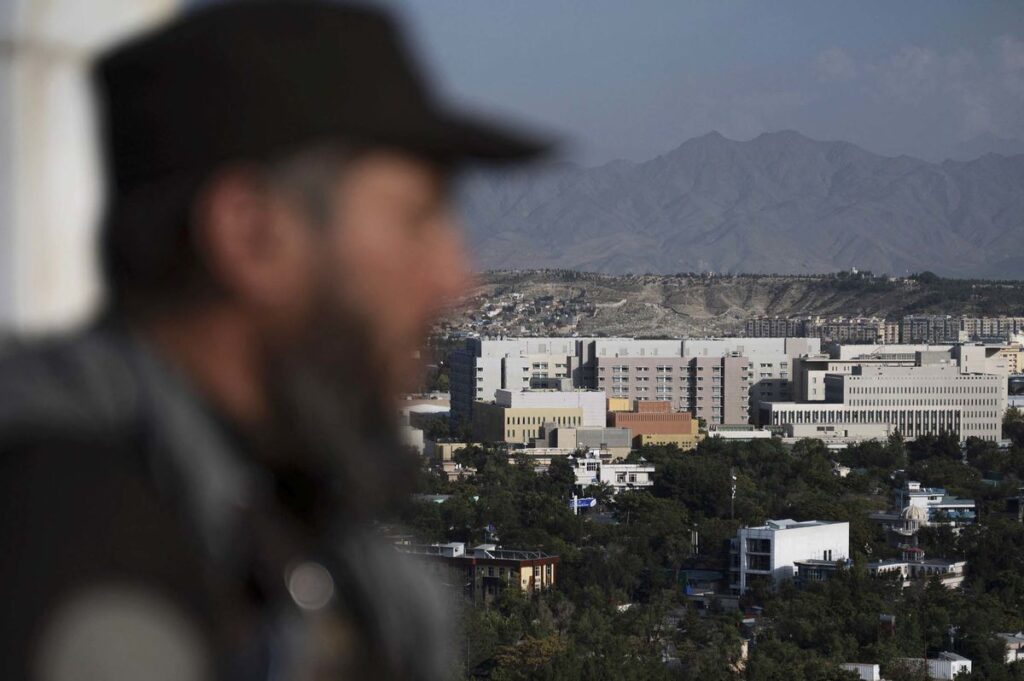
Taliban Continues Censorship, Web Blocks As It Promises 4G
Lawyers for Twitter and Elon Musk argued about how the whistle-blower accusation could affect the proposed $ 44 billion takeoveThailand YouTuber is accused of deceiving followers from $ 55 million plans to stop 20% of staff, according to reportsA year after reclaiming power in Afghanistan, the Taliban showed that it had no objections to the internet.
The Taliban, who previously blocked the web access to thwart what was called immorality and doubt, recently said that they enhance the Afghan internet network to 4G, a shift that marks the arms of western technology that has long been resisted.
Now, some areas in the capital are connected to 4G, and the Taliban hopes to work with network providers to expand the connectivity to remote areas in the country, Najibullah Haqqani, Acting Minister of Taliban for telecommunications and information technology, told Bloomberg. Most Afghan citizens with internet access now depend on 2G technology.
The fundamentalist Islamic group has been active in WhatsApp Meta Platforms Inc. Previously using social media to broadcast anti-US propaganda and now depends on WhatsApp and Twitter to issue government orders and press releases.
The main spokesman for this group uses Twitter to tell 660,000 followers that women are ordered to cover themselves from head to foot, for example.
They are more intelligent in media than before and they have developed dependence on this service as well, so it might no longer be for their sake to decide on relationships,” said Doug Madory, Director of Internet Analysis in San Francisco- a stroke-based network monitoring company. “As much as possible they aspire to return to medieval world, WhatsApp is useful.”
A quarter of 38 million Afghan people are connected to the internet from their cellphones, according to the numbers given to Bloomberg by the Taliban.While Afghanists try to find Wi-Fi, the government is learning to use the web like a blunt instrument.
Last year, Taliban officials suspended connectivity throughout Kabul to stop Afghan citizens from organizing protests during the arrest of their capital. In northeast Afghanistan, the Taliban also cut the internet to prevent online recruitment by opposite troops.
Activists and Human Rights Organizations say there is a targeted closure to hamper protests and limit media reporting about violations in the regions including Balkhab, Andarab and Panjshir. The Taliban admitted that it blocked 23 million “immoral” websites, which he said broadcasting content that was not Islam.
Connectivity in Afghanistan is always spotty and cost of maintenance costs. Haqqani told reporters that the government had collected 6.8 billion Afghanistan ($ 77 million) in taxes from the internet and mobile operators this year. The government also announced that they had ordered operators to cut the prices they set. That’s because Afghan citizens have found that while prices have risen, the service has been reduced.
Ahmadullah Wali, who was learning to degree BA in the economic field at Kabul University, said he could look for almost everything he wanted, but “Do we have good or bad speed depending on the location.”
People are now more careful than before when posting online,” he said, adding that users have deleted anti-tibabic posts and are now using alias to envelop their identity.
Access Now, a non -profit organization that advocates digital rights, notes that even if the average Afghanistan has access to Google, the fear of supervision or the ability of the Taliban to be able to monitor the history of the browser is a surprising freedom.



